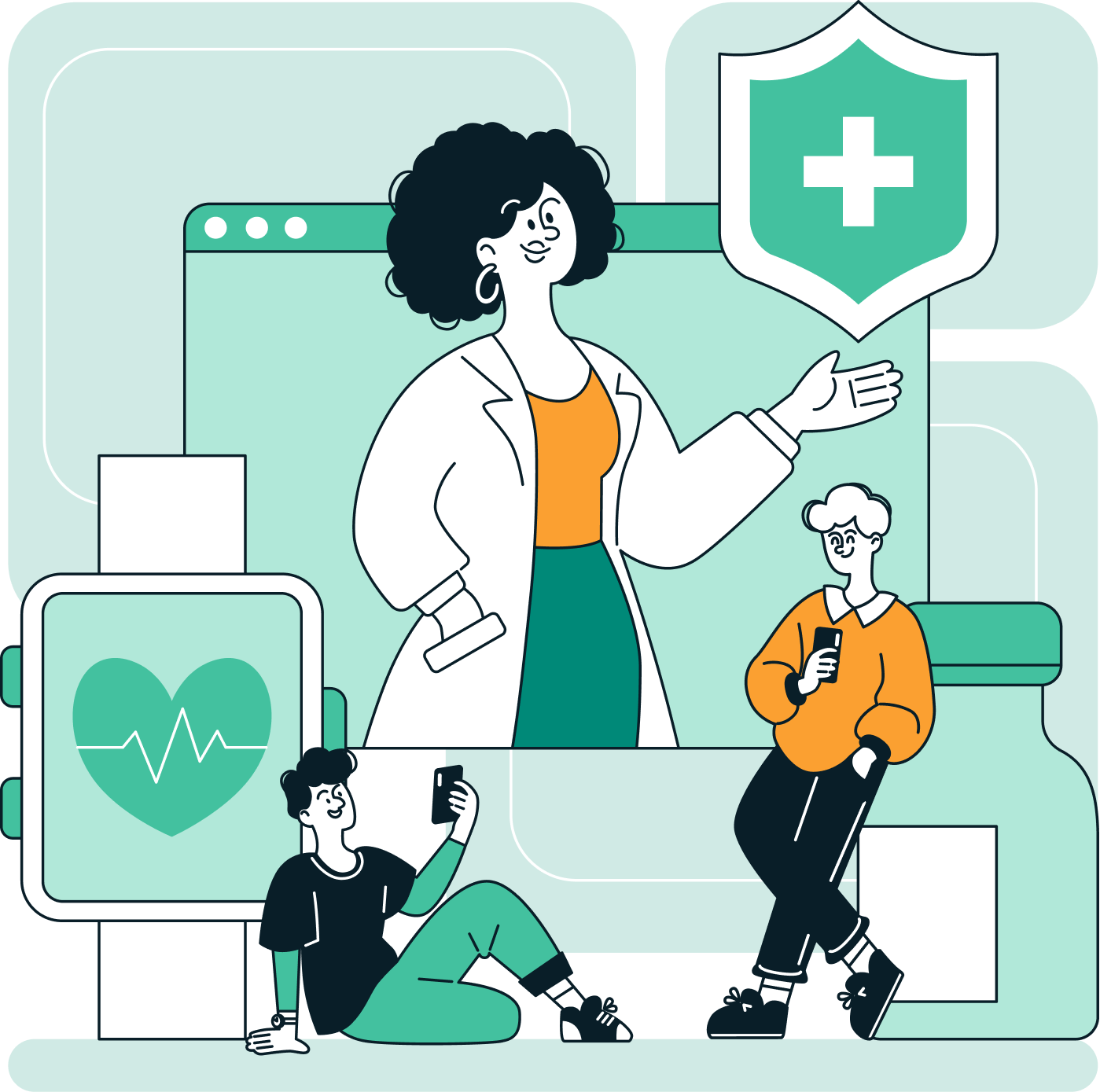Free Women's Symptom Checker
Specialized AI health assistant designed for women's unique health needs. Get personalized insights for reproductive health, hormonal changes, and women-specific conditions.

How It Works
Get specialized insights about women's health symptoms in three simple steps
Step 1: Health Profile
Share your age, menstrual cycle information, life stage, and any specific health concerns.
Step 2: Detailed Symptoms
Describe your symptoms considering hormonal cycles, reproductive health, and emotional factors.
Step 3: Specialized Analysis
Receive AI insights considering hormonal patterns and reproductive health factors unique to women.
Trusted by Women
Designed specifically for women's unique health challenges and hormonal patterns
Privacy & Sensitivity
Confidential and sensitive approach to intimate women's health concerns and reproductive issues with complete privacy protection.
Reproductive Health Focus
Specialized understanding of menstrual cycles, fertility, pregnancy, and menopause-related symptoms backed by medical expertise.
Hormonal Awareness
AI trained to understand hormonal fluctuations and their impact on women's health throughout all life stages.
Understanding Women's Health: Common Concerns
Women's health encompasses a complex array of unique physiological and psychological factors that span from adolescence through menopause and beyond. Hormonal fluctuations, reproductive health concerns, and gender-specific diseases require specialized understanding and care. Women face distinct health challenges including higher rates of autoimmune diseases, different cardiovascular symptoms, and reproductive health issues that can significantly impact overall well-being and quality of life.
Reproductive Health and Hormonal Balance
Conditions such as PCOS (Polycystic Ovary Syndrome), endometriosis, and menstrual irregularities affect millions of women worldwide. PCOS impacts 5-10% of reproductive-age women and can cause irregular periods, weight gain, and fertility issues. Endometriosis affects about 10% of women and can cause severe pelvic pain and heavy bleeding. Understanding menstrual cycle changes, ovulation symptoms, and hormonal imbalances is crucial for early detection and treatment. Fertility awareness and reproductive planning are essential components of women's health throughout childbearing years.
Breast and Gynecological Health
Breast cancer is the second most common cancer in women, with 1 in 8 women developing it during their lifetime. Regular self-examinations, clinical breast exams, and mammograms are vital for early detection. Cervical and ovarian cancers also pose significant risks, making regular Pap smears and pelvic exams essential. Women should be aware of changes in breast tissue, unusual vaginal bleeding, pelvic pain, and other gynecological symptoms that may indicate serious conditions requiring immediate medical attention.
Cardiovascular Health in Women
Heart disease is the leading cause of death among women, yet symptoms often differ from those experienced by men. Women may experience fatigue, nausea, shortness of breath, and jaw pain rather than classic chest pain. Risk factors include pregnancy complications, menopause, and autoimmune diseases. Hormonal changes during menopause can increase cardiovascular risk, making heart-healthy lifestyle choices increasingly important. Women should monitor blood pressure, cholesterol levels, and discuss cardiovascular risk factors with their healthcare providers.
Mental Health and Hormonal Influences
Women are twice as likely to experience depression and anxiety compared to men, often related to hormonal fluctuations during menstruation, pregnancy, postpartum, and menopause. Postpartum depression affects 10-20% of new mothers and requires specialized treatment. Premenstrual dysphoric disorder (PMDD) can severely impact daily functioning. The mental health challenges associated with infertility, pregnancy loss, and menopause also require attention and support. Recognizing the signs and seeking appropriate help is crucial for overall well-being.
Bone Health and Osteoporosis
Women are at higher risk for osteoporosis due to lower peak bone mass and accelerated bone loss after menopause. Estrogen decline significantly impacts bone density, making calcium and vitamin D supplementation, weight-bearing exercise, and bone density screenings essential. Early intervention can prevent fractures and maintain independence throughout life. Risk factors include family history, small frame, smoking, and certain medications.
The Doctor AI Pro Symptom Checker for Women provides a specialized tool designed specifically for women's unique health needs, offering personalized insights into reproductive health, hormonal changes, and female-specific conditions. Our advanced AI understands the complexity of women's health across all life stages, from adolescence through menopause and beyond. It's a step towards empowered health management, helping you make informed decisions about your health while recognizing when professional gynecological or medical consultation is essential.
Real Stories
See how our women's health platform has helped women make informed health decisions
Emma L., 28
Marketing Professional
"The symptom analysis tool helped me understand my irregular periods weren't normal. It guided me to see a gynecologist, and I was diagnosed with PCOS."
Sarah K., 45
Working Mother
"I was experiencing unusual fatigue and mood swings. The symptom checker suggested it might be perimenopause, which helped me have an informed conversation with my doctor."
Jessica R., 32
New Mother
"After giving birth, I was experiencing concerning symptoms. The tool helped me recognize signs of postpartum depression and encouraged me to seek help."
Common Women's Health Symptoms
Reproductive health concerns and symptoms across all life stages
Frequently Asked Questions
Common questions about our women's symptom checker
Ready to Take Control of Your Health?
No more waiting for appointments. Get instant health insights with Doctor AI Pro - Your AI Health Assistant.
Start for Free